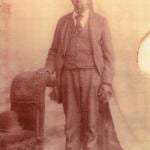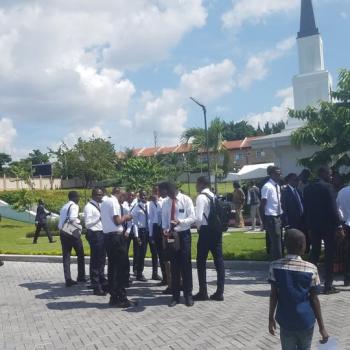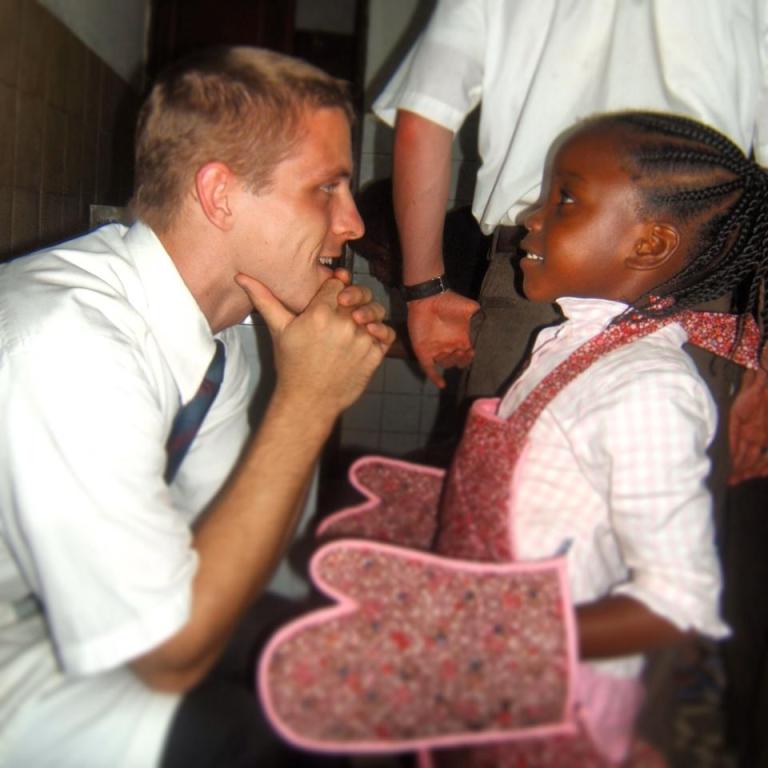 Pioneer Remembrance Day circa 1886, Willow’s Creek, Idaho
Pioneer Remembrance Day circa 1886, Willow’s Creek, Idaho
Green Flake describes slavery:
Bishop Simmons introduced him, and Green took the pulpit. He started slow but then got going and told his tale—what it was like to dig and hack out the trail the later pioneers would follow; what it was like to drive Brigham Young’s wagon and to know Brother Brigham on a personal basis; what it was like to see a grizzly bear lying dead at his feet and to see tears of pity in his Martha’s eyes. The more he talked, the more he remembered, until it seemed his whole life was painted in the sky around him. It was a lovely life, he thought. It wasn’t easy, but it was lovely.
When he finished, he asked if anyone had questions for him. One little girl in a fancy straw bonnet stood and shouted so the crowd could hear: “Mister Flake, what was it like being a slave?”
Bishop Simmons leapt to his feet. The whole audience seemed embarrassed, as though such a subject were indelicate for this festive occasion.
“Brother Flake, you don’t have to answer that question,” said the bishop.
Green wanted to answer, though. “Bein’ a slave is all right,” he said, and a rumble went through the crowd. “If you jus want to be a slave, that is.” His voice got louder. “But many of us colored folk wanted a better life, if we could find one. I was raised a slave and had a massa to tell me what to do. He gave me a place to sleep, fed and clothed me, worked me, and told me what to do each day. Sometimes I got whupped, and my massa would give me a big kick in the pants if I sluffed off or made a mistake or if I was lazy.”
As he spoke the words, he remembered Massa Madison clearer than he had in years. Madison never had the chance to get old, Green reflected. Neither had Mizz Agnes. And Liz, dear Lizzy, had died before she crossed her fortieth year. It had near broke his heart to learn Liz was gone. That news had found him years ago, and he still got a twinge of sadness when he remembered her. She wasn’t someone you’d forget easy. He recollected Liz Flake from the day of their first meeting. He could picture her as a little bitty thing, all decked out in that yellow frock, holding a bouquet of yellow roses with most the petals gone. He recalled her happy, almost grown-up face telling him a crop of colored women—including someone named Martha Crosby—had arrrived at Winter Quarters. Seemed unnatural that someone so good and so perky as Liz would pass away young.
Of course, there was some advantage to taking an early death, but not near the advantage to living a long, full life. As Green was seeing it now, his time on this earth had been full indeed. He found himself grateful.
“Now, slavery been around a long time,” Green continued. “And the colored folks got sold like they was a horse, a cow, or some other animal. They become the owner’s property, and they work long and hard for the massa. Most everyone don’t want to be a slave and be in bondage to another, because you cain’t have even your own thoughts and dreams. You cain’t plan for the future when all decisions gets made by someone else,” he concluded.
As he took his seat, his thoughts returned to Martha. They had both been slaves when they married. If their massas had been mean enough to care more about money than love, Green and Martha could’ve got sold off from each other and their babies sold away too. Thank the Lord, Green said to himself, that he and his woman had had the privilege of growing old together. Thank the Lord they had been delivered.












